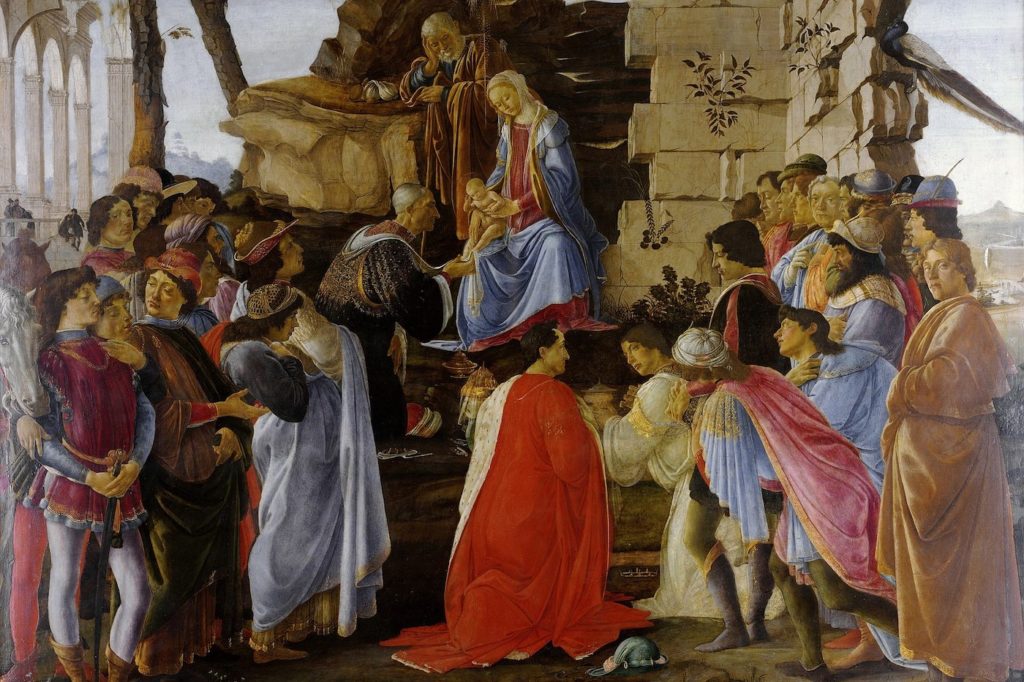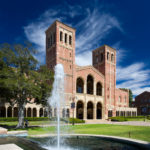This first week of January, the 118th Congress convenes for the first time. Some in Congress won their office despite serious character flaws and other liabilities because their victory promised to maximize the political power of their respective parties. On them are pinned the hopes and the fears of many partisans.
Also this first week of January, the Western church celebrates Epiphany: the visitation of the Magi and the manifestation of Christ to the Gentiles. For most Americans, these events appear totally unrelated. However, I would like to suggest that the politics of Epiphany and the politics of American Christianity have some rather intriguing and instructive parallels. The story about the Magi is well known, but its political importance remains largely unnoticed.
To state the conclusion in advance, I believe that the story of Epiphany provides a timeless lesson on the corrosive influence of politics on religion and religious leaders, revealing the unique temptation faced by the religious establishment, at all times and places, to maintain prestige and power.
The account of the visitation of the wise men appears only in Matthew’s Gospel, and contrary to what we might expect given our own culture’s rendition of the Christmas story, most of the Epiphany account is occupied with dialogue among the foreign Magi, Herod, and the local religious leadership. The Magi’s encounter with Jesus and Mary occupies only one verse. The Epiphany account, in keeping with the whole of Matthew, is focused on the Kingship of Christ and expounding the nature of the Kingdom of Heaven.
Start your day with Public Discourse
Sign up and get our daily essays sent straight to your inbox.The story of Epiphany provides a timeless lesson on the corrosive influence of politics on religion and religious leaders, revealing the unique temptation faced by the religious establishment, at all times and places, to maintain prestige and power.
The story is short and well known. A group of “wise men” (magi) journey eight hundred miles from Persia to Judea seeking the newly born “king of the Jews.” They arrive in Jerusalem, where they ask Herod the Great for directions. Herod in turn summons his own “wise men,” who recite the Bethlehem prophecy foretelling the birth of the Messianic king. After being instructed to return to Herod to confirm the birth of the new king, the Persian wise men make the short trek six miles south to Bethlehem where they worship and give kingly gifts to the infant Jesus.
The narrative leaves us with an obvious but rarely pondered question: Why didn’t Herod’s wise men join the Persians on the short journey to Bethlehem? Weren’t they at least curious? It would not take much effort to investigate the Magi’s claim.
After all, it’s not every day a large and wealthy entourage from Persia arrives unannounced, refers to Messianic prophecies, points to an astrological sign, and asks directions so that they might worship the new king of a people who had been without a monarch for more than five centuries. It was an extraordinary event, and the whole city of Jerusalem knew about it. And it seems that not one soul from Jerusalem went with them.
This is astonishing. So why didn’t the local religious leaders send a delegation along with the Magi? There are, of course, various hypotheses. While it is possible that they simply found the claims of the Magi to be too fantastic to merit serious consideration, many observers believe their reluctance is far from innocent. The interpretation that appears most often in sermons and commentaries is that, despite their impressive knowledge of Scriptures, they lacked the faith exhibited by the Persian wise men. While there may be truth in that view, it is a rather shallow explanation. Another bit of conventional wisdom is that the religious leaders were self-assured in their knowledge and did not want to give credence to the claims of foreign visitors whose Babylonian traditions were out of step with the authorities in Jerusalem. While this is certainly a more satisfactory explanation, I think it only captures part of the story.
Another reason the religious leaders chose not to send a delegation to Bethlehem was because doing so would be risky. They probably feared retaliation from Herod, a ruthless leader who was paranoid about losing power. He was infamous for executing his wife, several sons and other relatives, and Jewish leaders whom he perceived as a threat. Sending a delegation to Bethlehem would have suggested they were open to the claims of a rival king and made them vulnerable to charges of disloyalty and treason.
But both the political context and the text itself seem to indicate that fear of death was not the only reason for their reluctance. I believe that the religious and political context suggests that the religious leaders made a more calculated decision to protect their own ambitions and political power. In verse 3, Matthew records that not only Herod was troubled by the news, but also all of Jerusalem. Later, Matthew records a similar reaction in which all of Jerusalem is troubled when Jesus comes riding into the city to the proclamations of a crowd that he was the Messiah. Jerusalem was the center of Roman rule in the region, which goes some way to explaining why the city rejected the claims of Jesus.
In fact, some local leaders benefited from Herod’s rule. Despite being a tyrant, he was a fabulously successful politician. He was a diplomatic genius and brought great economic prosperity to Judea. He rebuilt entire cities and undertook many large-scale building projects. This culminated in Herod’s massive expansion of the Temple, which brought great prestige and power to the religious establishment there.
Thus, despite their dislike of Herod, local leaders enjoyed a significant degree of social prestige under Roman rule and Herod’s kingship. An upstart claimant to another throne would ruin this whole arrangement. These leaders would only entertain Messianic claims of someone who they knew could successfully topple Roman rule and secure true independence and power for themselves. Anything short of this would only undermine their current power, position, and political goals under Herod’s rule. As a matter of political strategy, it would be premature to cast their lot with a rival king who, after all, was only an infant and would not have been in any position to liberate them from Roman rule.
In short, the religious leaders did not seek first the kingdom of God. They sought first their own power and position within the political order of the day. They seemed to think they could achieve their religious and political purposes through allying themselves with a powerful and successful political figure. They lost sight of to whom they owed their allegiance, and they equated their religious and political agenda with the building of God’s kingdom. The temptation to maintain power and prestige is enormous and often leads to the corrosion of one’s most sacred convictions. This is equally true for every religion. Power corrupts, and political power for religious leaders often corrupts absolutely.
The religious leaders did not seek first the kingdom of God. They sought first their own power and position within the political order of the day.
In the Epiphany story, perhaps most of those who stayed behind were well intentioned. Perhaps they thought, we must ally ourselves with this wicked politician to protect our access to power so that we can ultimately protect our whole way of life.
This logic sounds all too familiar, and it is incredibly seductive. How often have American Christians—especially American Evangelicals—adopted this kind of thinking? This rush to self-preservation and obsession with power has led to some theological and moral corruptions of Christianity. Many Christian leaders have begun either to prioritize their own power and wealth, or to put their trust in princes to protect God’s people. See Jerry Falwell, Jr., Robert Jeffress, Franklin Graham, Eric Metaxas, and others.
As the leaders go, so go the people. This toxicity has reached broader masses. What we saw in the Jericho March and now the Reawaken America Tour, which has filled stadiums and megachurches, is nothing short of idolatry. These events are saturated in apocalyptic language that depicts existential threats to the United States. Stoking fear and anger, such events portray political figures such as Trump as chosen by God to be the saviors of America and the American church. They hold out the promise that if Christians would simply be willing to set aside their moral scruples, they can achieve real influence in the halls of power and effectively fight back against the forces of evil that threaten their way of life.
These are the most extreme examples of an outlook that has become increasingly prominent in the American Evangelical subculture. We are in the midst of an important moment for Christianity in the United States. And American Christians are in a perilous position not unlike the one God’s people faced in Roman Palestine. It is tempting to fuse God’s kingdom with our political aspirations. It is tempting to closely ally ourselves with political figures whose morals and methods are antithetical to the tradition’s ethical teachings, because we think they can provide power, protection, and prestige.
This road leads to a double betrayal and self-destruction. The leaders in Jerusalem were not safe, and not long afterward Rome destroyed Jerusalem. They sought to maintain their own political power, but it provided no lasting security. American Christians now risk the same.
It is tempting to fuse God’s kingdom with our political aspirations. It is tempting to closely ally ourselves with political figures whose morals and methods are antithetical to the tradition’s ethical teachings, because we think they can provide power, protection, and prestige.
While Christians may cooperate with political authorities to promote justice and religious freedom, such cooperation should not compromise our core moral and theological commitments. We should be willing to renounce political privileges, to walk away, and to potentially lose everything, trusting that in the long run God will accomplish his good purposes. As we read in Psalm 118 (widely viewed as a Messianic psalm), “It is better to take refuge in the Lord than to trust in princes,” because “the Lord is [our] strength.” God’s power is sufficient for us. The Incarnation was first announced to shepherds who had a low social status and no political power or connections. Jesus recruited mostly fishermen from a backwater region to be his disciples. The Gospel was spread, the church was built, societies were transformed, and justice and mercy were advanced by believers who had little influence or status. Cultural transformation and the kingdom of God are not ushered in through political power, but through the faithful witness and service of believers who seek God’s kingdom and righteousness above all else.
As we Christians celebrate Epiphany and observe the beginning of a new legislative term, we would do well to reflect on our own allegiances and agendas and to be wary of the perils of political power and prestige.














